
Supercars of the 80s – Ferrari Testarossa
Step back into the 80s with the iconic Ferrari Testarossa, the symbol of style and speed that defined a decade
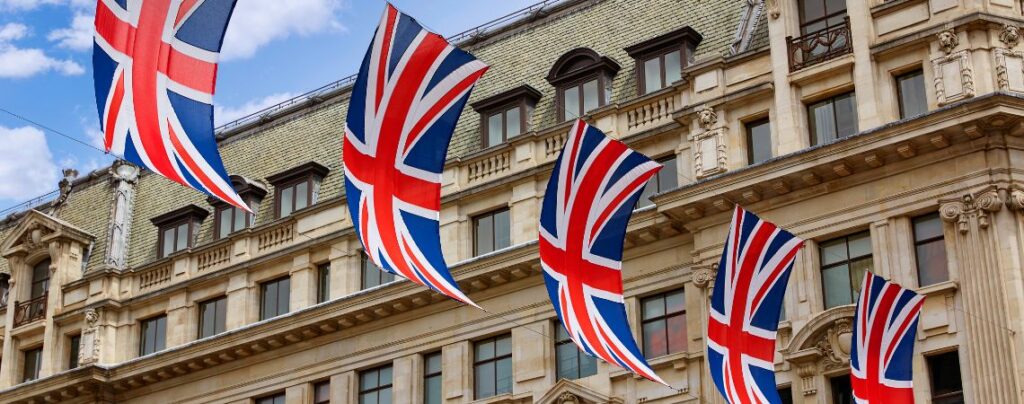
Most of Britain is affected by heavy snow and sub zero temperatures.
1st: Personal equity plans permitting tax-free investments in shares are introduced.
2nd: Golliwogs are banned from Enid Blyton books by their publisher and replaced by politically correct gnomes following complaints that golliwogs were offensive to black people.
4th: Economists predict that unemployment will fall below 3,000,000 by the end of this year.
5th: Harold Macmillan, Lord Stockton, former Prime Minister, is buried in the village of Horsted Keynes, having died on 29 December at the age of 92.
13th: Prince Edward leaves the Royal Marines just three months after joining.
14th: Heavy snow falls across Britain leaving houses, towns, roads, railways and motor vehicles stranded and blocked.
15th: Unemployment is reported to have fallen in December 1986 for the fifth month in succession.
20th: Terry Waite, the special envoy of the Archbishop of Canterbury in Lebanon, disappears in Beirut while negotiating for the release of hostages.
Embed from Getty ImagesPolice arrest 26 suspected football hooligans across Britain after a mass operation.
30th: The flotation of British Airways begins.
11th: British Airways is privatised and listed on the London Stock Exchange.
Cynthia Payne is acquitted of controlling prostitutes in her London home.
12th: Edwina Currie sparks controversy by stating that “good Christians won’t get AIDS”.
24th: it is alleged that six Nazi war criminals are living in Britain.
26th: Church of England’s General Synod votes to allow the ordination of women.
Rosie Barnes wins the Greenwich seat for the SDP from Labour in a by-election.
3rd: National Health Service prescription charges rise from £2.20 to £2.40.
6th: British ferry MS Herald of Free Enterprise capsizes while leaving the harbour of Zeebrugge, Belgium, killing 193 on board.
The value of the pound is at a five-year high.
13th: 25-year-old Matthew Taylor wins Truro for the Liberals in the by-election caused by the death of David Penhaligon three months ago.
19th: Winston Silcott, a 28-year-old black man, is sentenced to life imprisonment for the murder of PC Keith Blakelock in the Tottenham riots 17 months ago.
23rd: 31 people are injured when a suspected IRA bomb explodes at a British army barracks in Rheindahlen, West Germany.
27th: Neil Kinnock meets Ronald Reagan in Washington DC.
29th: Margaret Thatcher visits Moscow.
Embed from Getty Images30th: Christie’s auction house in London sells one of Vincent van Gogh’s iconic Sunflowers paintings for £24,750,000.
1st: MP’s vote against the restoration of the death penalty by 342–230.
3rd: The jewellery of the late Duchess of Windsor is sold at auction for £31 million, six times the expected value.
5th: Arsenal win the Football League Cup for the first time in their history with a 2-1 win over Liverpool, earning them their first major trophy since 1979. Charlie Nicholas scores both of Arsenal’s goals.
16th: Conservative MP Harvey Proctor appears in court charged with gross indecency.
22nd: The former Prime Minister Jim Callaghan is appointed to the Order of the Garter. He will be retiring from parliament after the General Election.
29th: Chancellor Nigel Lawson promises that the United Kingdom will soon have an income tax rate of 25p in the pound.
30th: the House of Lords approve the sterilisation of a “mentally subnormal” 17-year-old female.
4th: Everton win the Football League First Division title for the ninth time in their history.
8th: Loughgall ambush: Soldiers of the SAS kill eight members of the Provisional Irish Republican Army at Loughgall, County Antrim.
10th: The church of St Mary-at-Hill in the City of London is damaged in a fire.
11th: Margaret Thatcher calls a General Election for 11 June, with most of the opinion polls pointing towards her securing a third successive election victory for the Conservatives, with the Labour opposition expected to increase its share of votes and seats in its first General Election under the leadership of Neil Kinnock.
British Rail renames Second class as Standard class.
14th: Unemployment has fallen to 3,107,128.
15th: Family Law Reform Act removes remaining legal distinctions between children born to married and unmarried parents.
16th: Coventry City F.C. win the FA Cup for the first time in their history with a 3–2 win in the final over Tottenham Hotspur, who had won all of their previous seven FA Cup finals.
25th: Aldershot F.C. become the first team to win promotion through the new Football League playoffs, winning promotion from the Fourth Division with a 3-0 aggregate win over their illustrious opponents Wolverhampton Wanderers (who have a total of eight major trophies to their name, the most recent just seven years ago). The Hampshire club have already condemned another illustrious side, Bolton Wanderers (four times FA Cup winners) to relegation to the Fourth Division for the first time in their history.
3rd: The last MORI poll before the general election shows the Conservatives 11 points ahead of Labour with 43% of the vote, while the Liberal/SDP Alliance’s support stands at 24% and their hopes of building on their result at the last election look exceedingly slim.
7th: Chessington Zoo is renamed Chessington World of Adventures and is even made into a theme park by Madame Tussaud’s.
11th: The 1987 General Election sees Margaret Thatcher secure her third term in office. However, her majority is reduced to 102 compared to the 144 seat majority gained at the election four years ago.High-profile casualties of the election include the SDP’s former leader Roy Jenkins (once a Labour Home Secretary) and the Ulster Unionist Party’s 75-year-old Enoch Powell (a former Conservative MP). Four ethnic minority candidates are successful: Diane Abbott, Paul Boateng, Bernie Grant and Keith Vaz. Among the MP’s retiring from parliament is 75-year-old James Callaghan, the former Prime Minister.
18th: Unemployment has fallen below 3 million for the first time since 1981 after the biggest monthly fall in unemployment since records began in 1948 seeing more than 100,000 of the unemployed find jobs in May.
19th: Howard Kendall, managers of Football League champions Everton, resigns to take over of Athletic Club Bilbao in Spain. His successor at Everton is the club’s assistant manager Colin Harvey.
22nd: Race riots break out in the Chapeltown area of Leeds.
25th: a MORI poll shows support for the Conservative Party stands at almost 50% – the highest during Margaret Thatcher’s time as leader.
27th: 25 years after the first James Bond film was released, the 15th Bond film premieres in London – with the spy now being played by Timothy Dalton.
30th: Peter Beardsley, the 26-year-old England striker, becomes the most expensive player transferred between British clubs when he completes a £1.9 million move from Newcastle United to Liverpool.
12th: £60 million is stolen during the Knightsbridge Security Deposit robbery.
16th: British Airways and British Caledonian agree a £237 million merger.
Unemployment is reported to be down to just over 2,900,000.
22nd: Palestinian cartoonist Naji al-Ali is shot in London; his condition is described as “critical”.
24th: Novelist and former Conservative MP Jeffrey Archer wins a libel case against Daily Star over allegations that he was involved in a vice ring.
Embed from Getty Images27th: Rick Astley’s Never Gonna Give You Up is released, the first of eight singles to reach the Top 10 in the UK.
29th: the Channel Tunnel is given the go-ahead after Margaret Thatcher and François Mitterrand ratify the Treaty of Canterbury. It is expected to be open within six years.
30th: the Queen opens the Docklands Light Railway in London, the first driverless railway in Great Britain. Passenger service would begin a month later.
31st: The Attorney General institutes legal proceedings against The Daily Telegraph to prevent it publishing details from the book Spycatcher.
4th: Just months after confessing to a further two murders, the Moors Murderer Ian Brady claims that he committed a further five murders.
6th: Dr David Owen resigns as leader of the Social Democratic Party after its members vote to merge with the Liberal Party.
10th: one person a day in Britain is now reported to be dying of AIDS.
13th: First building of post-war design to be Listed: Bracken House in the City of London, designed by Sir Albert Richardson as the Financial Times headquarters (1955–9).
Unemployment continues to fall, with the 12th successive monthly fall bringing the national total to less than 2.9 million.
19th: Michael Ryan shoots dead 14 people in the Berkshire town of Hungerford before taking his own life with a rifle. 16 people are injured, some of them seriously.
Order of the Garter is opened to women.
21st: The Hungerford massacre death toll rises to 16 with the deaths of two more victims in hospital from their injuries.
27th: Robert Maclennan replaces David Owen as leader of the Social Democratic Party.
29th: Naji al-Ali dies in hospital more than five weeks after being shot.
30th: David Owen forms a breakaway SDP.
7th: Ford completes its takeover of the luxury sports car company Aston Martin.
9th: 25 Liverpool football fans are extradited to Belgium to face charges of manslaughter in connection with the Heysel Stadium disaster more than two years ago.
11th: The government unveils plans to abolish the Inner London Education Authority.
22nd: The government bans automatic weapons of the type used by Hungerford killer Michael Ryan.
23rd: An Australian court lifts the ban on the publication of Spycatcher.
Construction work begins on the extension to the M40 motorway between Oxford and Birmingham. It is hoped that the motorway, providing an alternative route to the M6 and M1 from the Midlands to London as well as improving road links with the Midlands and the South Coast ports, will be fully operational by 1990.
1st: Swedish home product retailer IKEA opens its first British store at Warrington in Cheshire.
Embed from Getty Images9th: Margaret Thatcher tells the Conservative Party Conference in Blackpool that she wants to continue as Prime Minister until 1994 and the age of 69, which would make her Britain’s oldest Prime Minister since Harold Macmillan in 1963. She is already three months away from becoming Britain’s longest serving Prime Minister this century, exceeding the previous record set by H. H. Asquith more than 70 years ago.
11th: £1 million Operation Deepscan in Loch Ness fails to locate the legendary Loch Ness Monster.[33]
15–16th: great storm: hurricane force winds batter much of south-east England, killing 23 people and causing extensive damage to property.
18th: two days after the end of the storm in south-east England, some 250,000 homes in the region are still without electricity.
19th: Black Monday: Wall Street crash leads to £50 billion being wiped of the value of shares on the London stock exchange.
Glanrhyd Bridge collapse: train falls off bridge into River Towy in Wales that had collapsed due to flooding, killing four people.
23rd: Retired English jockey Lester Piggott is jailed for 3 years after being convicted of tax evasion.
25th: Peugeot begins production of its second car – the 405 four-door saloon – at the Ryton plant near Coventry. The first customers are set to take delivery of their cars after Christmas. A French-built estate version will be launched next year.
The first Acid House raves are reported in the United Kingdom, many of them being in derelict buildings.
1st: British Rail establishes a world speed record for diesel traction, 148.4 mph (238.9 km/h) with a test InterCity 125 formation between Darlington and York.
2nd: Peter Brooke succeeds Norman Tebbit as chairman of the Conservative Party.
3rd: It is announced that unemployment in Britain fell quicker during October than in any other European country.
5th: London City Airport opens.
8th: Enniskillen bombing: Eleven people are killed by a Provisional Irish Republican Army bomb at a Remembrance Day service at Enniskillen.
11th: Customs officers in Southampton seize more than £50 million worth of cocaine – the most expensive haul of the drug ever found in Britain.
12th: Unemployment has fallen to 2.7 million (just under 10% of the workforce), the lowest level of unemployment in Britain for over six years.
17th: The government announces that the Poll tax (community charge) will be introduced in April 1990.
18th: A fire at Kings Cross on the London Underground kills 31 people.
19th: Conservative support has reached 50% in a MORI poll for the first time.
24th: The government announces that free eye tests are to be abolished.
9th: The England cricket team’s tour of Pakistan is nearly brought to a premature end when captain Mike Gatting and umpire Shakoor Rana row during a Test Match.
15th: Channel Tunnel construction is initiated, and it is expected to open in 1993 or early 1994.[40]
17th: A year that has seen an excellent performance for the British economy ends with unemployment reported to have fallen below 2.7 million, having started the year in excess of 3 million.
ITV enjoys a record breaking audience when more than 26 million viewers tune in for the Christmas Day episode of Coronation Street, in which Hilda Ogden (Jean Alexander) makes her last appearance in the show after 23 years. The Christmas Number one was “Always on my mind” by The Pet Shop Boys.
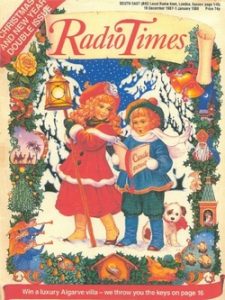
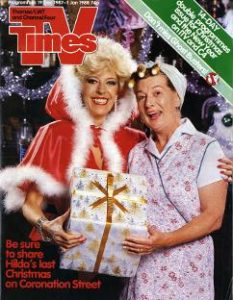
29th: PWL release the Kylie Minogue single I Should Be So Lucky. Australian Minogue, 19, has already hugely popular with British audiences for her role in the TV soap Neighbours, which debuted on the BBC 14 months ago.
31st: 31 British and Belgian people are recognised in the New Year Honours for heroism shown in the rescue operation at the Zebrugge tragedy earlier in the year.

Step back into the 80s with the iconic Ferrari Testarossa, the symbol of style and speed that defined a decade
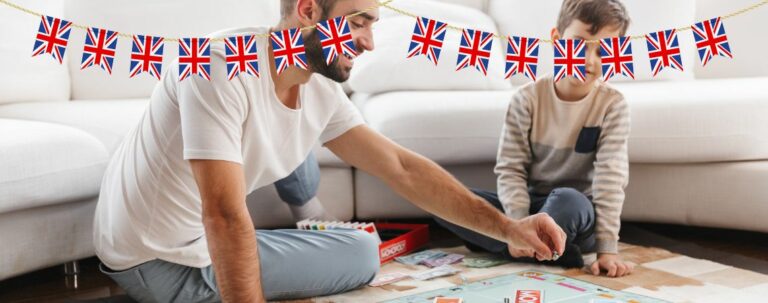
Take a trip down memory lane with these 20 iconic board games and toys that defined our 1980s childhood in the UK.
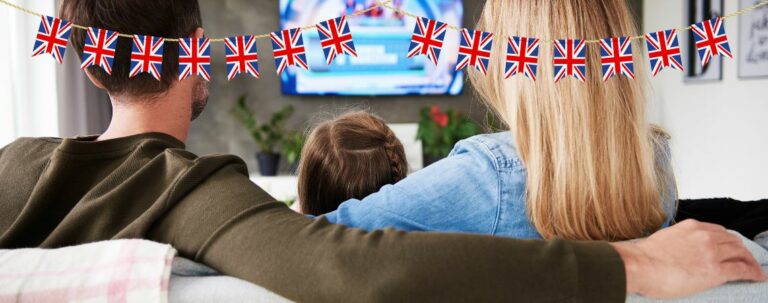
Immerse yourself in nostalgia with this collection of iconic 1980s UK TV adverts – a true blast from the past!

Tina Turner, the Queen of Rock ‘n’ Roll, whose life and career became a symbol of resilience and triumph, has left an enduring legacy
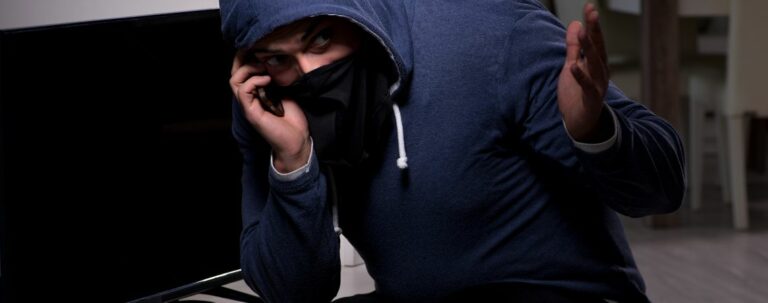
Uncover the Top 10 UK TV Villains of the 1980s: A journey through the most notorious and memorable antagonists of the decade
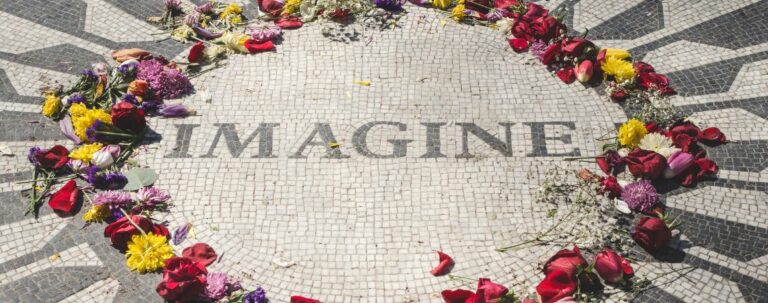
1980 saw the first CND rallies, the Alton Towers theme park opening and the murder of John Lennon in New York. The Moscow Olympics was the sport highlight.
No Events